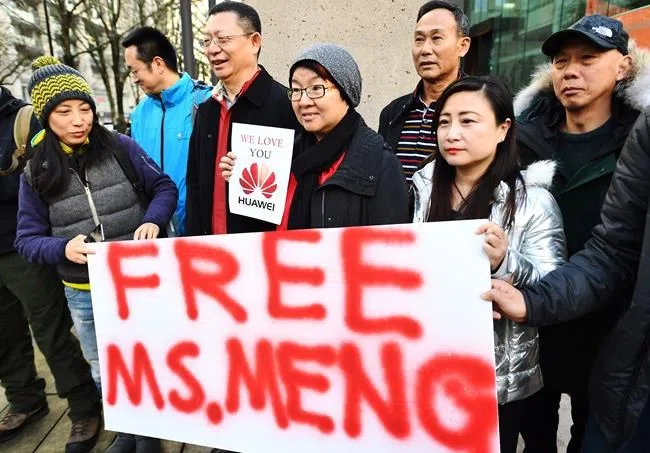
Trump to envoy Canada says Huawei arrest not political, but China rise is worrying
OTTAWA — China’s economic and political rise may be bad news for North American workers but the U.S. pursuit of a Huawei executive is a separate legal matter, says Donald Trump’s envoy to Canada.
Ambassador Kelly Craft said Tuesday it was “absolutely false” to assume a political motive behind the controversial arrest of Meng Wanzhou, the Chinese telecom giant’s chief financial officer.
Canada detained Meng at the request of the United States when she was passing through Vancouver on Dec. 1. The United States wants Meng to face charges related to possible violations of trade sanctions against Iran.
“It is a very delicate process, and I don’t want to be involved in something that is an ongoing, independent judiciary process. Our law enforcement work very closely together,” Craft told a small group of journalists at her Ottawa residence on Tuesday.
